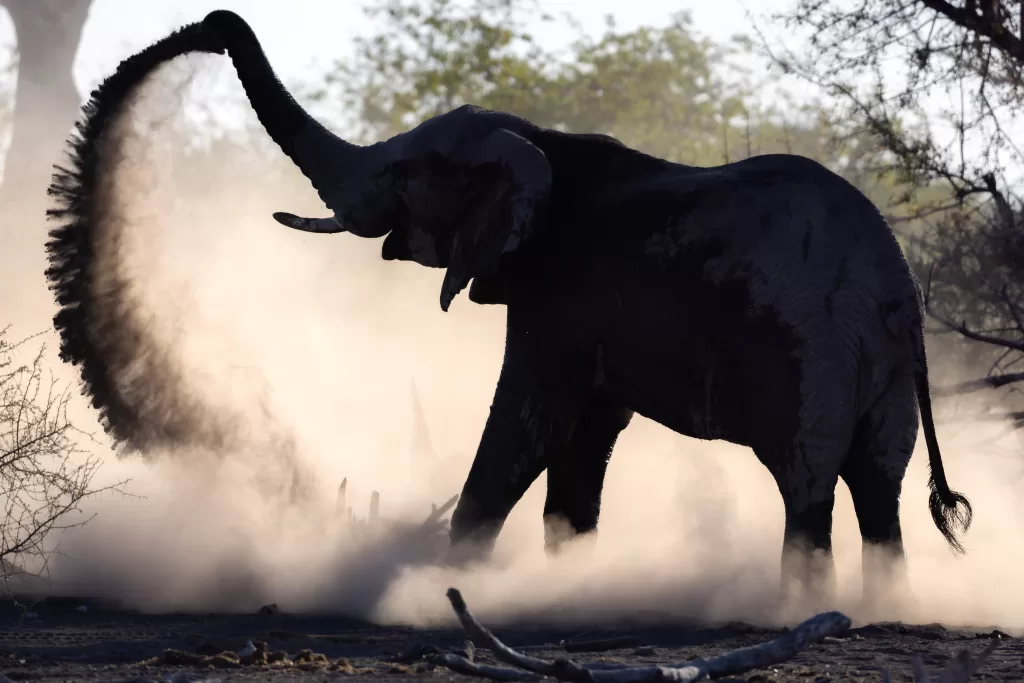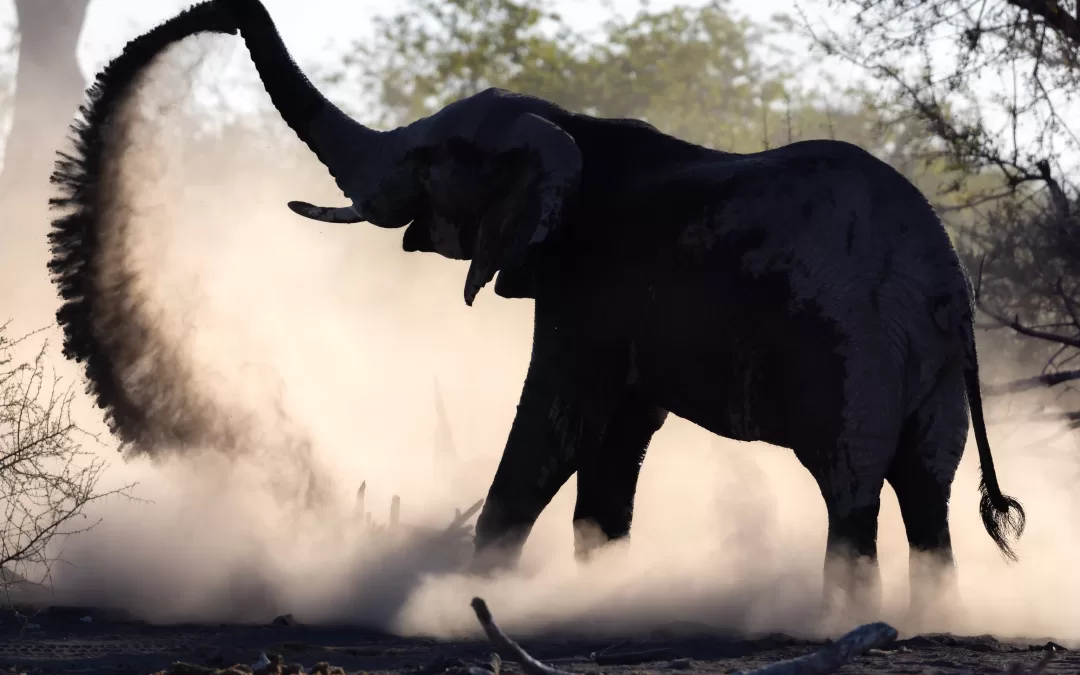Time flies and so it happens that the family of Brittany can already boast their 10-year’s involvement with the Reserve. Here is Brittany’s story of her last visit: “My family became involved with Limpopo-Lipadi in 2013. Since then, we have clocked up an impressive number of visits to this corner of Botswana, but few of those visits have occurred during the Reserve’s winter. For our honeymoon, my husband and I decided to come out for 10 days during August. The wonderful thing about coming back to the same place time and time again is that you can appreciate how it changes. My last August visit was in 2013, and the Reserve that I remember of that visit was wildly different to what we saw this time around. The streams next to our lodge still flowed strongly and in many places the trees had not yet lost their leaves. There was some greenery, but a wonderful ocean of golden and rust-coloured leaves was to be enjoyed when you looked out from some of the higher parts of the Reserve. Sightings of wildlife came thick and fast on this trip. One of the benefits of repeat visits is that you can stop haring around, trying to check off ‘must see’ animals, and can relax into the game drives. I had been suffering from a leopard drought, not having seen any on our last visit in December, but this time around we had a brief, but majestic sighting of a large male stretching on top of a koppie and repeat sightings of another shy male near one of the pans. My husband and I also enjoyed doing our best to interpret the tracks and signs that we encountered. We have both taken our ‘4×4 driving test’, so alternated between days where we would drive with Lucky, one of the Reserve’s longest-standing guides, and driving ourselves. Naturally, Lucky is a wizard who can interpret spoor and signs in a flash, and who knows the Reserve like the back of his hand. On this trip he spent a lot of time teaching us some of what he knew: this is how you differentiate hyena tracks, a puff adder was sun-bathing here, these are the tracks of a relaxed bull elephant, and (crucially), this behaviour from elephants warns you to keep your distance. On the days that we self-drove we often took a book to pans and sat patiently, enjoying the birds and the game that came to visit. I have seen a great variety of kingfisher on the Reserve: giant, woodland, brown hooded, pied, malachite, but not yet managed to capture the perfect photograph of one fishing. Further efforts were made in that department one morning at a local pan, but I’m still in search of the perfect shot. Even without Lucky’s expertise, we still had some marvellous sightings whilst self-driving: leopard, rhino, elephants galore, honey badger, brown hyena, porcupine, to name but a few. A loosely styled ‘mission’ on this trip was to try and catch a glimpse of the Reserve’s wild dogs. I have seen great changes to our pack over the last decade, and it’s an exciting time at present. Some years ago, the pack had been decimated by rabies and was struggling to compete with lion numbers. Following a reduction in lion numbers, and with time, the numbers were slowly increasing. We knew that the dogs were denning, and suspected that they were in the second den, with the pups about 6 – 8 weeks old. By combining knowledge of historic denning sights, reading spoor and signs, and using telemetry equipment, we (really it was all thanks to Lucky and Botilo, the Reserve’s researcher) identified the site that we thought was the likely den spot. Early one morning we were fortunate enough to spy one dog, fresh from a kill, trotting along the road towards our vehicle, passing within metres of it without a care in the world. On our final day, a fresh impala kill was found on the road, surrounded by adult and puppy tracks: it seems likely that the dogs had shifted to their tertiary den(s) and that the puppies were now of an age where they would start to venture out. Too late for us on this visit, but a wonderful challenge for other shareholders to take up. We look forward to returning later this year, hopefully to the sight of some adolescent dogs, and to enjoy the reserve more generally when it is full of life and growth.” If you would like to be a part of our conservation efforts, do call on us. For discreet information on share sales, contact generalmanager@limpopo-lipadi.org. To book a safari, request our rates via reservations@limpopo-lipadi.org or via WhatsApp: (+267) 76770191.


Images: Harry Martin Photography

